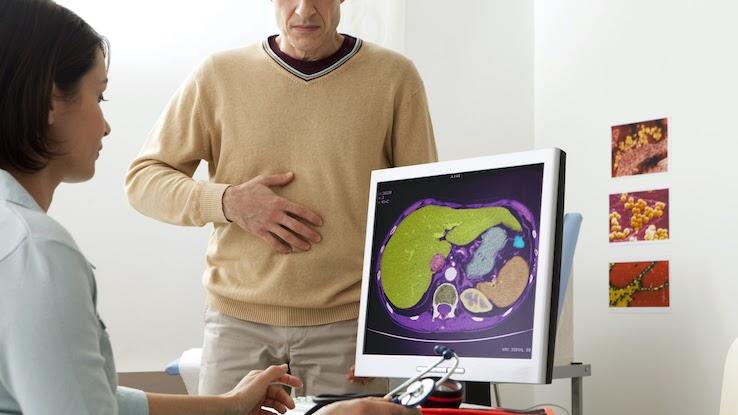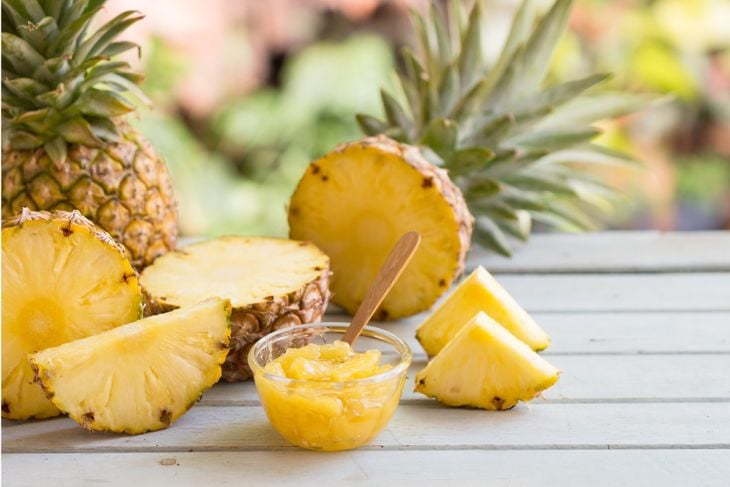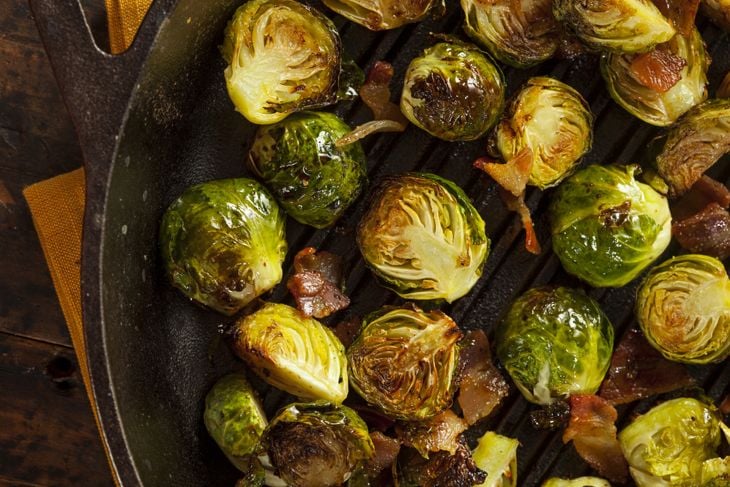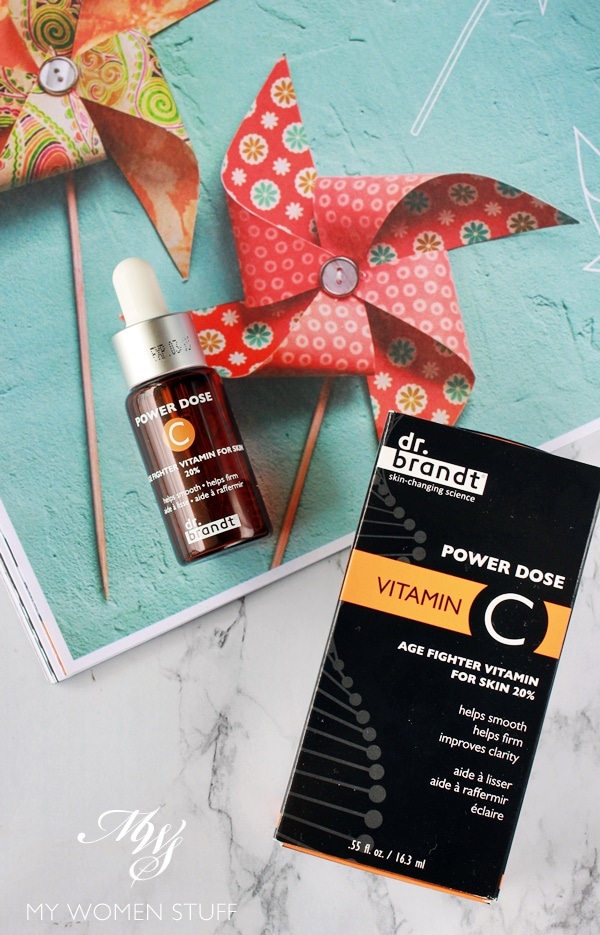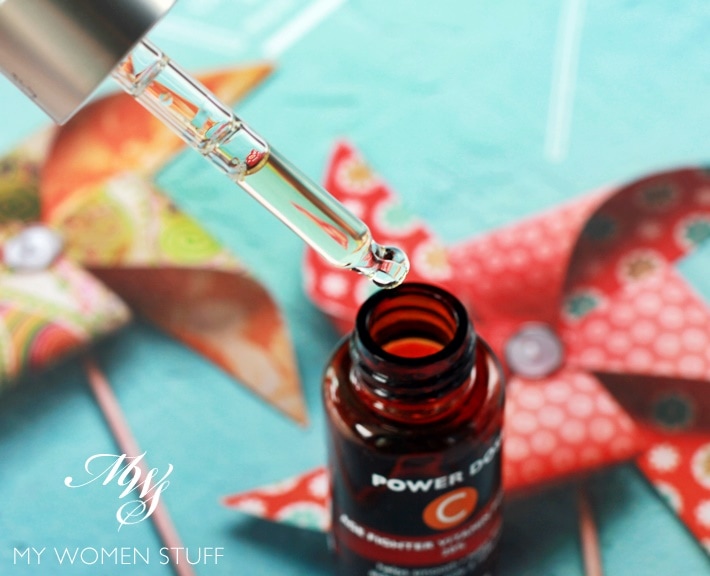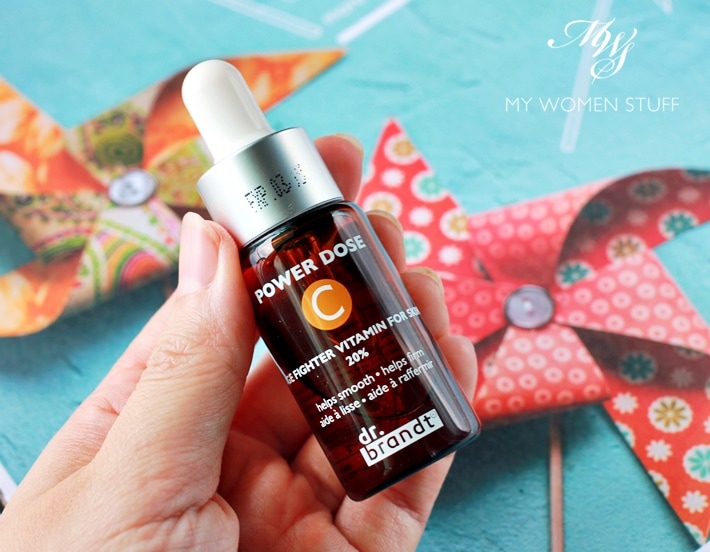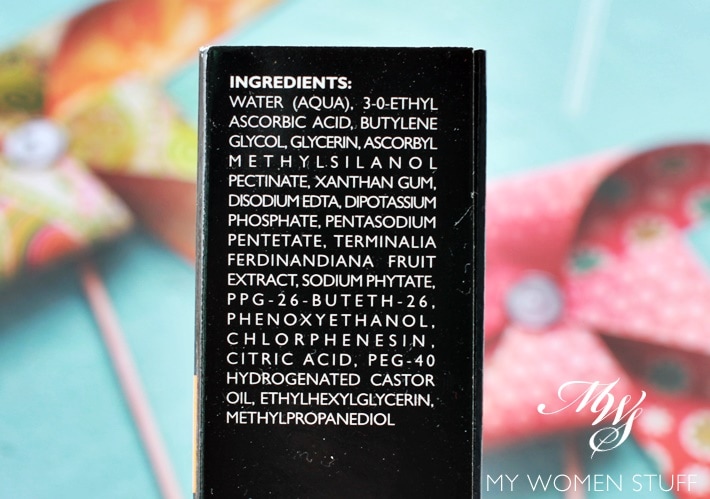
Scientists have isolated the unique molecule that provides olive oil with its multitude of health and life-extending benefits. Known as oleuropein, it is the polyphenol that can help lower bad cholesterol and blood pressure, prevent cancer, protect against oxidative damage, and help guard against cognitive decline.1,2 Oleuropein provides the distinctive tangy, pungent, almost bitter flavor found in high quality extra virgin olive oils.2 It's also responsible for most of olive oil's antioxidant, anti-inflammatory, and disease-fighting characteristics.2-4 In fact, when oleuropein was given to animals with tumors, the tumors completely regressed and disappeared in 9 to 12 days!5
The olive tree (Olea europaea) produces oleuropein abundantly in its leaves as well as in the olive fruit itself, and special processing techniques now allow for the extraction of a stable, standardized form of oleuropein. That means that consumers can have access to one of the most beneficial components of olive oil without the necessity of consuming excessive amounts of olive oil.
Olive leaf extracts and their oleuropein constituents are best known for their blood pressure-lowering effects, but the latest studies reveal their health benefits extend well beyond that. Additional anti-inflammatory and antioxidant properties offer promise in fighting atherosclerosis, diabetes, cancer, neurodegenerative diseases, and even arthritis.
How to Benefit from Olive Leaf Extract
- The Mediterranean diet offers a host of benefits that prolong life and improve health.
- Olive oil, a major component of the Mediterranean diet, contains a unique compound called oleuropein that provides its characteristic biting, astringent taste.
- Oleuropein is responsible for most of olive oil's antioxidant, anti-inflammatory, and disease-fighting characteristics.
- Olive leaves contain high amounts of oleuropein, making their extracts a valuable source of this nutrient without the need to consume large amounts of olive oil.
- Olive leaf extracts show tremendous promise in preventing or mitigating conditions as diverse as hypertension, heart disease, diabetes, cancer, stroke, Alzheimer's, and arthritis.
Blood Pressure
Animal studies demonstrate that olive leaf extracts lead to significant drops in elevated blood pressure.6,7 Remarkably, these effects are evident when supplementation occurs either before or after the animals develop hypertension. This means that the extracts have the ability to both prevent and treat high blood pressure.8
The drop in blood pressure is accompanied by reduced pressure in the heart's left ventricle. This results in improved blood flow to the heart's own coronary blood vessels. Additional human studies demonstrate the ability of olive leaf extracts to significantly reduce blood pressure measurements.9
One particularly fascinating study was conducted among identical twins with hypertension (blood pressure in the range of 120-139 mmHg over 80-89 mmHg).10 Studies of identical twins virtually eliminate genetic variations which may impact study results. After 8 weeks, placebo recipients showed no change in blood pressure from baseline, but patients supplemented with 1,000 mg/day of olive leaf extract dropped their pressures by a mean of 11 mmHg systolic and 4 mmHg diastolic.10 The supplemented patients experienced significant reductions in LDL cholesterol.
A human study measured olive leaf extract against captopril, one of the conventional drugs used for treating hypertension.11 In this study, patients with what is now considered stage-2 hypertension (140-159 mmHg over 90-99 mmHg) took either 500 mg of olive leaf extract twice daily, or 12.5 mg of captopril twice daily, which was increased as needed to 25 mg twice daily. After 8 weeks of treatment, both groups experienced a drop in mean blood pressure from baseline (11.5 and 13.7 mmHg systolic; 4.8 and 6.4 mmHg diastolic, respectively), with no significant difference between the two groups. In other words, the olive leaf extract performed as well as the prescription drug. A closer look in the laboratory reveals the reason for this equivalence. Although they utilize different mechanisms of action (oleuropein acts as a natural calcium channel blocker and captopril is a well-known ACE-inhibitor), both oleuropein and captopril function inside the vasculature to decrease the tension in the walls of blood vessels and promote widening of the vessels (vasodilation), ultimately lowering blood pressure.12-15
Arterial Health

Atherosclerosis
Blood pressure is only one measure of cardiovascular health; arterial health is equally important. The endothelial cells that line arterial walls play a key role in maintaining blood flow and pressure; they also regulate the distribution of smooth muscle cells and sustain an even flow of blood through vessels. Endothelial dysfunction is one of the earliest stages in hardening of the arteries (atherosclerosis), which occurs when plaques build up in the arterial walls. These plaques eventually block blood flow and can trigger a heart attack or stroke.
Olive leaf extracts fight endothelial dysfunction at multiple levels. They increase the production of nitric oxide, a signaling molecule that helps relax blood vessels.16,17 They reduce the production and activity of a class of molecules known as matrix metalloproteinases, or MMPs.18-20 Excessive MMP activity literally dissolves the gel-like matrix that holds cells together, making vessel linings increasingly vulnerable to plaque damage. They also help prevent the oxidation of LDL-cholesterol, which is one of the earliest events in developing atherosclerosis.21-23 Oxidized LDL triggers inflammation, further damaging arteries, and olive leaf extract has multi-targeted anti-inflammatory effects.20,24,25
Polyphenol compounds found in olive leaves have been shown to help directly prevent the formation of arterial plaques (and thereby reduce the risk of heart attack and stroke) in two ways. First, they reduce the production and activity of a series of "adhesion molecules."26-28 These substances cause white blood cells and platelets to stick to arterial walls, resulting in early plaque formation. Second, they reduce platelet aggregation (clumping) by multiple mechanisms, which reduces the risk that tiny clots will form at sites of plaque to produce a stroke or heart attack.29,30
Diabetes

The diabetic (and pre-diabetic) state of chronic blood sugar elevation imposes substantial oxidative stress throughout the body, triggering inflammation and tissue damage that rapidly accelerates aging. Treatments for diabetes have two main goals: 1) lowering blood glucose to normal levels and 2) limiting the damage done by the inevitable blood sugar spikes that still occur.
Olive leaf extracts are showing real promise in both of these areas. In animal and basic lab studies, olive leaf extracts and oleuropein have been found to lower blood sugar through several mechanisms.31-34 They slow the digestion of starches into simple sugars, slow absorption of those sugars from the intestine, and increase the uptake of glucose into tissues from the blood.31,32 They protect tissues from the oxidant damage caused when glucose binds to proteins in the process called glycation.33,34 They also increase levels of other natural antioxidant systems in the body, broadening the degree of protection.33
These mechanisms have directly observable benefits. Studies show that diabetic animals supplemented with olive leaf extracts experience significant reductions in blood sugar and cholesterol.33-35 In a dramatic head-to-head study, diabetic rats were treated with either olive leaf extract or glyburide (Diabeta®), a common glucose-lowering drug.35 By the end of the study, the antidiabetic effects of the extract proved superior to those of the drug.35
One intriguing study showed that when lab rats were fed a high-fat, high-carbohydrate diet, they developed all the signs of metabolic syndrome (excessive abdominal fat, hypertension, abnormal lipid profile, and impaired glucose tolerance).36 But when animals were fed that unhealthy diet along with olive leaf extracts, virtually all of the metabolic abnormalities improved or, in some cases, normalized.36
Human studies reveal that supplementing with 500 mg of olive leaf extract once daily resulted in significant reductions in hemoglobin A1c levels, the standard marker of long-term exposure to elevated blood sugar in diabetic people.31 Supplementation also lowered fasting plasma insulin levels, an important point because chronic insulin elevations may contribute to diabetics' higher cancer risks.31,37
Cancer
The Mediterranean diet is renowned for its ability to reduce the risk of cancer.38,39 While numerous aspects of the diet contribute to this risk reduction, there's growing evidence that olive oil—and specifically its oleuropein content—are key components of the diet's anti-cancer effects.
Studies show that oleuropein's antioxidant effects help it battle cancer formation at its earliest stages. Olive leaf extracts inhibit DNA damage from reactive oxygen species, which is the very first step in development of malignant cells.40 Once cells become cancerous, they rely on a host of chemical signaling factors that promote their growth and organization into tumors. Olive leaf compounds are known to inhibit growth factors and disrupt signalling pathways.41-43 Oleuropein also suppresses an enzyme cancer cells rely on to derive and store energy from dietary carbohydrates.44
Oleuropein and olive leaf extracts have numerous other mechanisms of action against cancer:
- They help prevent inflammation, another major promoter of tumor growth.41
- In breast cancer cells specifically, oleuropein reduces malignant cells' ability to respond to estrogen, the female hormone that many breast cancer cells depend on for their survival.43
- Oleuropein inhibits the production of the "protein-melting" enzymes that cancer cells need in order to invade healthy tissues and metastasize to distant parts of the body.19
These mechanisms have now been shown in laboratory and animal studies to reduce the rates of occurrence, and subsequent development, of a broad variety of cancers, including those of the brain, head and neck, breast, liver, bladder, prostate, and skin, as well as leukemia.42,43,45-49
In one especially vivid study, mice with a high spontaneous cancer rate were orally supplemented with oleuropein.5 The tumors completely regressed and disappeared in 9 to 12 days.5 When the tumors were examined before they vanished, they were found to have a disordered, crumbly consistency, and no cancer cells remained alive within.5
Neuroprotection

Olive extracts help protect the brain and central nervous system from the destruction brought on by strokes and age-related degenerative conditions such as Alzheimer's and Parkinson's diseases.50 They accomplish this by suppressing inflammation and reducing the damage done by oxidative stress.
In acute brain injuries such as those caused by a stroke or trauma, damaging processes such as oxidative stress occur within minutes of the original event—and, ironically, are worsened by the return of normal blood flow to the area.50,51
Researchers found a number of positive effects in animals that were pre-treated with olive leaf extract and then induced with a stroke. Compared with untreated animals, the treated animals experienced a sharp reduction in markers of oxidation and an increase in normal cellular antioxidant systems.52,53 Microscopic examination of brain tissue revealed a similar decline in injury to brain cells and up to a 55% decrease in the volume of dying brain tissue.50 Similar results are shown in experimental spinal cord injury in animals pretreated with oleuropein.53
Olive leaf extracts offer similar protection for neurodegenerative diseases. Oxidative stress occurs more gradually in neurodegenerative diseases. However, the effects add up over a lifetime, producing inflammation and other changes that result in the accumulation of abnormal proteins that interfere with brain function and kill neurons. Olive leaf extracts help prevent these abnormal proteins from assembling into the neurofibrillary tangles seen in the brains of people with Alzheimer's and similar diseases.54-56
Arthritis
Olive leaves and their extracts have long been used in the Mediterranean as folk remedies for arthritis. Now, scientific evidence has proven that olive leaf extracts can in fact interfere with the development of several different kinds of arthritis, including gout, rheumatoid arthritis, and osteoarthritis.
Gout is caused by the accumulation of uric acid crystals in joints, the byproducts of impaired recycling of DNA and RNA in cells. In a mechanism identical to that of allopurinol (the gold standard drug therapy for gout), oleuropein prevents the buildup of uric acid by inhibiting xanthine oxidase, the enzyme responsible for converting DNA and RNA into uric acid.57
Oleuropein has also been found to help prevent and treat symptoms of rheumatoid arthritis. When administered at the earliest sign of arthritis in animal models, oleuropein prevented symptoms from developing and also produced marked improvement in the microscopic appearance of joint tissue from affected animals. When administered after arthritis was fully developed, there was significant improvement in inflammatory changes to joints, compared with untreated animals.58
Oleuropein had similar benefits on osteoarthritis. In animal models of this degenerative joint disease, olive leaf extract improved joint swelling, improved the microscopic appearance of joint tissue, and prevented the production of inflammatory cytokines.59
Summary

The Mediterranean diet reduces your risk for virtually every condition associated with aging. Olive oil is a major component of that diet. Olive leaves contain higher amounts of oleuropein, a polyphenol with unique health-improving attributes. These extracts have been used in traditional medicine for centuries to improve age-related diseases.
Now, scientific evidence has shown that these extracts have a remarkable impact on blood pressure and heart disease—and they can help protect against other age-related chronic conditions as well. Convincing evidence now shows that oleuropein-rich olive leaf extracts help prevent many of the underlying factors leading to diabetes, cancer, neurodegenerative diseases, stroke, and arthritis.
Extra-virgin olive oil and olive leaf extract should be considered an important component of one's health and longevity program.
If you have any questions on the scientific content of this article, please call a Life Extension® Wellness Specialist at 1-866-864-3027.
References
- Available at: http://www.tesisenred.net/bitstream/handle/10803/7208/tvk.pdf?sequence=1#page=30. Accessed March 8, 2013.
- Omar SH. Oleuropein in olive and its pharmacological effects. Sci Pharm. 2010;78(2):133-54.
- Wahle KW, Caruso D, Ochoa JJ, Quiles JL. Olive oil and modulation of cell signaling in disease prevention. Lipids.2004 Dec;39(12):1223-31.
- Waterman E, Lockwood B. Active components and clinical applications of olive oil. Altern Med Rev. 2007 Dec;12(4):331-42.
- Hamdi HK, Castellon R. Oleuropein, a non-toxic olive iridoid, is an anti-tumor agent and cytoskeleton disruptor. Biochem Biophys Res Commun.2005 Sep 2;334(3):769-78.
- Ribeiro Rde A, Fiuza de Melo MM, De Barros F, Gomes C, Trolin G. Acute antihypertensive effect in conscious rats produced by some medicinal plants used in the state of Sao Paulo. J Ethnopharmacol.1986 Mar;15(3):261-9.
- Somova LI, Shode FO, Ramnanan P, Nadar A. Antihypertensive, antiatherosclerotic and antioxidant activity of triterpenoids isolated from Olea europaea, subspecies africana leaves. J Ethnopharmacol.2003 Feb;84(2-3):299-305.
- Khayyal MT, el-Ghazaly MA, Abdallah DM, Nassar NN, Okpanyi SN, Kreuter MH. Blood pressure lowering effect of an olive leaf extract (Olea europaea) in L-NAME induced hypertension in rats. Arzneimittelforschung .2002;52(11):797-802.
- Cherif S, Rahal N, Haouala M, et al. A clinical trial of a titrated Olea extract in the treatment of essential arterial hypertension. J Pharm Belg. 1996 Mar-Apr;51(2):69-71.
- Perrinjaquet-Moccetti T, Busjahn A, Schmidlin C, Schmidt A, Bradl B, Aydogan C. Food supplementation with an olive (Olea europaea L.) leaf extract reduces blood pressure in borderline hypertensive monozygotic twins. Phytother Res. 2008 Sep;22(9):1239-42.
- Susalit E, Agus N, Effendi I, et al. Olive (Olea europaea) leaf extract effective in patients with stage-1 hypertension: comparison with Captopril. Phytomedicine .2011 Feb 15;18(4):251-8.
- Available at: http://www.rxlist.com/capoten-drug.htm. Accessed March 11, 2013.
- Scheffler A, Rauwald HW, Kampa B, Mann U, Mohr FW, Dhein S. Olea europaea leaf extract exerts L-type Ca(2+) channel antagonistic effects. J Ethnopharmacol.2008 Nov 20;120(2):233-40.
- Gilani AH, Khan AU, Shah AJ, Connor J, Jabeen Q. Blood pressure lowering effect of olive is mediated through calcium channel blockade. Int J Food Sci Nutr.2005 Dec;56(8):613-20.
- Zare L, Esmaeili-Mahani S, Abbasnejad M, et al. Oleuropein, chief constituent of olive leaf extract, prevents the development of morphine antinociceptive tolerance through inhibition of morphine-induced L-type calcium channel overexpression. Phytother Res. 2012 Nov;26(11):1731-7.
- Visioli F, Bellosta S, Galli C. Oleuropein, the bitter principle of olives, enhances nitric oxide production by mouse macrophages. Life Sci. 1998;62(6):541-6.
- Rocha BS, Gago B, Barbosa RM, Laranjinha J. Dietary polyphenols generate nitric oxide from nitrite in the stomach and induce smooth muscle relaxation. Toxicology.2009 Nov 9;265(1-2):41-8.
- Palmieri D, Aliakbarian B, Casazza AA, et al. Effects of polyphenol extract from olive pomace on anoxia-induced endothelial dysfunction. Microvasc Res. 2012 May;83(3):281-9.
- Scoditti E, Calabriso N, Massaro M, et al. Mediterranean diet polyphenols reduce inflammatory angiogenesis through MMP-9 and COX-2 inhibition in human vascular endothelial cells: A potentially protective mechanism in atherosclerotic vascular disease and cancer. Arch Biochem Biophys. 2012 Nov 15;527(2):81-9.
- Dell'Agli M, Fagnani R, Galli GV, et al. Olive oil phenols modulate the expression of metalloproteinase 9 in THP-1 cells by acting on nuclear factor-kappaB signaling. J Agric Food Chem. 2010 Feb 24;58(4):2246-52.
- Jemai H, Bouaziz M, Fki I, El Feki A, Sayadi S. Hypolipidimic and antioxidant activities of oleuropein and its hydrolysis derivative-rich extracts from Chemlali olive leaves. Chem Biol Interact. 2008 Nov 25;176(2-3):88-98.
- Visioli F, Galli C. Oleuropein protects low density lipoprotein from oxidation. Life Sci. 1994;55(24):1965-71.
- Masella R, Vari R, D'Archivio M, et al. Extra virgin olive oil biophenols inhibit cell-mediated oxidation of LDL by increasing the mRNA transcription of glutathione-related enzymes. J Nutr.2004 Apr;134(4):785-91.
- Wang L, Geng C, Jiang L, et al. The anti-atherosclerotic effect of olive leaf extract is related to suppressed inflammatory response in rabbits with experimental atherosclerosis. Eur J Nutr. 2008 Aug;47(5):235-43.
- Impellizzeri D, Esposito E, Mazzon E, et al. The effects of oleuropein aglycone, an olive oil compound, in a mouse model of carrageenan-induced pleurisy. Clin Nutr. 2011 Aug;30(4):533-40.
- Carluccio MA, Siculella L, Ancora MA, et al. Olive oil and red wine antioxidant polyphenols inhibit endothelial activation: antiatherogenic properties of Mediterranean diet phytochemicals. Arterioscler Thromb Vasc Biol. 2003 Apr 1;23(4):622-9.
- Turner R, Etienne N, Alonso MG, et al. Antioxidant and anti-atherogenic activities of olive oil phenolics. Int J Vitam Nutr Res. 2005 Jan;75(1):61-70.
- Dell'Agli M, Fagnani R, Mitro N, et al. Minor components of olive oil modulate proatherogenic adhesion molecules involved in endothelial activation. J Agric Food Chem. 2006 May 3;54(9):3259-64.
- Singh I, Mok M, Christensen AM, Turner AH, Hawley JA. The effects of polyphenols in olive leaves on platelet function. Nutr Metab Cardiovasc Dis. 2008 Feb;18(2):127-32.
- Zbidi H, Salido S, Altarejos J, et al. Olive tree wood phenolic compounds with human platelet antiaggregant properties. Blood Cells Mol Dis. 2009 May-Jun;42(3):279-85.
- Wainstein J, Ganz T, Boaz M, et al. Olive leaf extract as a hypoglycemic agent in both human diabetic subjects and in rats. J Med Food. 2012 Jul;15(7):605-10.
- Gonzalez M, Zarzuelo A, Gamez MJ, Utrilla MP, Jimenez J, Osuna I. Hypoglycemic activity of olive leaf. Planta Med. 1992 Dec;58(6):513-5.
- Al-Azzawie HF, Alhamdani MS. Hypoglycemic and antioxidant effect of oleuropein in alloxan-diabetic rabbits. Life Sci. 2006 Feb 16;78(12):1371-7.
- Jemai H, El Feki A, Sayadi S. Antidiabetic and antioxidant effects of hydroxytyrosol and oleuropein from olive leaves in alloxan-diabetic rats. J Agric Food Chem. 2009 Oct 14;57(19):8798-804.
- Eidi A, Eidi M, Darzi R. Antidiabetic effect of Olea europaea L. in normal and diabetic rats. Phytother Res. 2009 Mar;23(3):347-50.
- Poudyal H, Campbell F, Brown L. Olive leaf extract attenuates cardiac, hepatic, and metabolic changes in high carbohydrate-, high fat-fed rats. J Nutr. 2010 May;140(5):946-53.
- Simon D, Balkau B. Diabetes mellitus, hyperglycaemia and cancer. Diabetes Metab. 2010 Jun;36(3):182-91.
- Kontou N, Psaltopoulou T, Soupos N, et al. Metabolic syndrome and colorectal cancer: the protective role of Mediterranean diet--a case-control study. Angiology. 2012 Jul;63(5):390-6.
- Verberne L, Bach-Faig A, Buckland G, Serra-Majem L. Association between the Mediterranean diet and cancer risk: a review of observational studies. Nutr Cancer. 2010;62(7):860-70.
- Anter J, Fernandez-Bedmar Z, Villatoro-Pulido M, et al. A pilot study on the DNA-protective, cytotoxic, and apoptosis-inducing properties of olive-leaf extracts. Mutat Res. 2011 Aug 16;723(2):165-70.
- Corona G, Deiana M, Incani A, Vauzour D, Dessi MA, Spencer JP. Inhibition of p38/CREB phosphorylation and COX-2 expression by olive oil polyphenols underlies their anti-proliferative effects. Biochem Biophys Res Commun. 2007 Oct 26;362(3):606-11.
- Kimura Y, Sumiyoshi M. Olive leaf extract and its main component oleuropein prevent chronic ultraviolet B radiation-induced skin damage and carcinogenesis in hairless mice. J Nutr. 2009 Nov;139(11):2079-86.
- Sirianni R, Chimento A, De Luca A, et al. Oleuropein and hydroxytyrosol inhibit MCF-7 breast cancer cell proliferation interfering with ERK1/2 activation. Mol Nutr Food Res. 2010 Jun;54(6):833-40.
- Menendez JA, Vazquez-Martin A, Oliveras-Ferraros C, et al. Analyzing effects of extra-virgin olive oil polyphenols on breast cancer-associated fatty acid synthase protein expression using reverse-phase protein microarrays. Int J Mol Med. 2008 Oct;22(4):433-9.
- Goulas V, Exarchou V, Troganis AN, et al. Phytochemicals in olive-leaf extracts and their antiproliferative activity against cancer and endothelial cells. Mol Nutr Food Res. 2009 May;53(5):600-8.
- Abdel-Hamid NM, El-Moselhy MA, El-Baz A. Hepatocyte lysosomal membrane stabilization by olive leaves against chemically induced hepatocellular neoplasia in rats. Int J Hepatol. 2011;2011:736581.
- Fares R, Bazzi S, Baydoun SE, Abdel-Massih RM. The antioxidant and anti-proliferative activity of the Lebanese Olea europaea extract. Plant Foods Hum Nutr. 2011 Mar;66(1):58-63.
- Grawish ME, Zyada MM, Zaher AR. Inhibition of 4-NQO-induced F433 rat tongue carcinogenesis by oleuropein-rich extract. Med Oncol. 2011 Dec;28(4):1163-8.
- Acquaviva R, Di Giacomo C, Sorrenti V, et al. Antiproliferative effect of oleuropein in prostate cell lines. Int J Oncol. 2012 Jul;41(1):31-8.
- Mohagheghi F, Bigdeli MR, Rasoulian B, Hashemi P, Pour MR. The neuroprotective effect of olive leaf extract is related to improved blood-brain barrier permeability and brain edema in rat with experimental focal cerebral ischemia. Phytomedicine. 2011 Jan 15;18(2-3):170-5.
- Pan J, Konstas AA, Bateman B, Ortolano GA, Pile-Spellman J. Reperfusion injury following cerebral ischemia: pathophysiology, MR imaging, and potential therapies. Neuroradiology. 2007 Feb;49(2):93-102. Epub 2006 Dec 20.
- Dekanski D, Selakovic V, Piperski V, Radulovic Z, Korenic A, Radenovic L. Protective effect of olive leaf extract on hippocampal injury induced by transient global cerebral ischemia and reperfusion in Mongolian gerbils. Phytomedicine .2011 Oct 15;18(13):1137-43.
- Khalatbary AR, Ahmadvand H. Neuroprotective effect of oleuropein following spinal cord injury in rats. Neurol Res. 2012 Jan;34(1):44-51.
- Bazoti FN, Bergquist J, Markides KE, Tsarbopoulos A. Noncovalent interaction between amyloid-beta-peptide (1-40) and oleuropein studied by electrospray ionization mass spectrometry. J Am Soc Mass Spectrom. 2006 Apr;17(4):568-75.
- Daccache A, Lion C, Sibille N, et al. Oleuropein and derivatives from olives as Tau aggregation inhibitors. Neurochem Int. 2011 May;58(6):700-7.
- Rigacci S, Guidotti V, Bucciantini M, et al. Abeta(1-42) aggregates into non-toxic amyloid assemblies in the presence of the natural polyphenol oleuropein aglycon. Curr Alzheimer Res. 2011 Dec;8(8):841-52.
- Flemmig J, Kuchta K, Arnhold J, Rauwald HW. Olea europaea leaf (Ph.Eur.) extract as well as several of its isolated phenolics inhibit the gout-related enzyme xanthine oxidase. Phytomedicine .2011 May 15;18(7):561-6.
- Impellizzeri D, Esposito E, Mazzon E, et al. Oleuropein aglycone, an olive oil compound, ameliorates development of arthritis caused by injection of collagen type II in mice. J Pharmacol Exp Ther.2011 Dec;339(3):859-69.
- Gong D, Geng C, Jiang L, Wang L, Yoshimura H, Zhong L. Mechanisms of olive leaf extract-ameliorated rat arthritis caused by kaolin and carrageenan. Phytother Res. 2012 Mar;26(3):397-402.
- Olive leaf. Monograph. Altern Med Rev. 2009 Mar;14(1):62-6.









